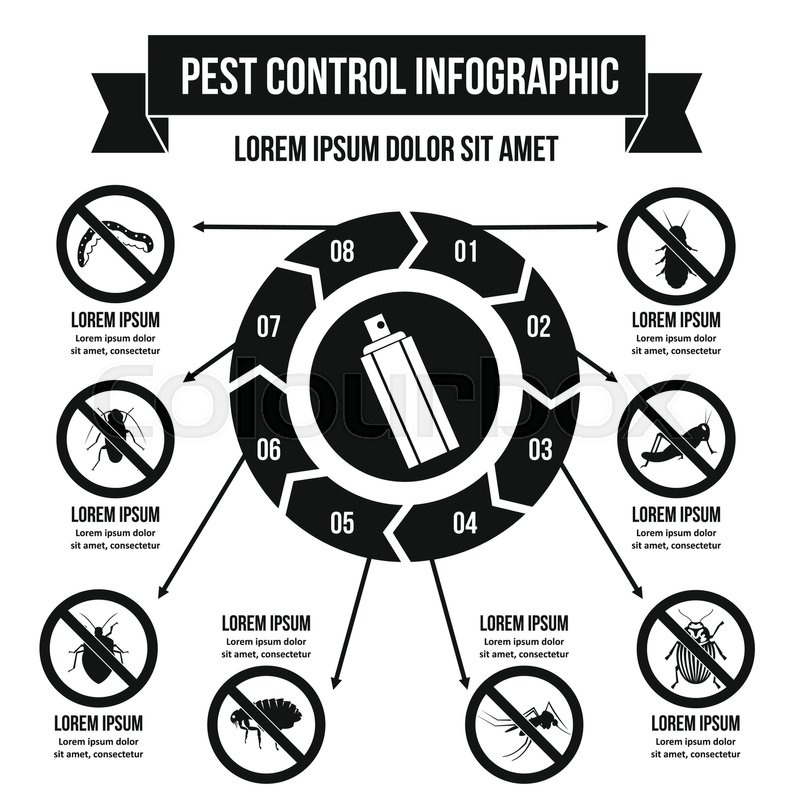The Function Of Bug Control In Food Safety And Security And Hygiene
The Function Of Bug Control In Food Safety And Security And Hygiene
Blog Article
Authored By-Franklin Murphy
Are you knowledgeable about the hidden threats that parasites position to the safety and security and hygiene of your food? From rodents to bugs, these undesirable site visitors can infect your active ingredients, surface areas, and storage locations.
This short article checks out the critical function of insect control in maintaining the highest criteria of food safety and hygiene. Discover efficient approaches and avoidance steps that will certainly help you protect your business, consumers, and online reputation.
Don't let bugs jeopardize the high quality of your food.
The Impact of Insects on Food Security and Hygiene
In your kitchen, bugs can have a considerable influence on food safety and security and health. These undesirable visitors, such as rodents, pests, and cockroaches, can contaminate your food, surfaces, and tools with hazardous bacteria, infections, and parasites. They can easily access your pantry, cupboards, and even your fridge, leaving behind droppings, pee, and hair.
Not only can they spoil your food by eating through packaging, but they can additionally spread out illness like Salmonella, E.coli, and Listeria. Envision preparing a dish for your family members, unaware that the ingredients you're utilizing are already infected.
It's vital to take instant activity to avoid and control insects in your cooking area. Normal cleaning, correct food storage, and specialist parasite control measures are important to make sure food security and preserve a hygienic setting in your cooking area.
Efficient Pest Control Strategies for the Food Market
Carrying out reliable insect control techniques is vital for keeping food safety and health in the food market. By executing these approaches, you can avoid pests from contaminating the food and guarantee that your items are safe for usage.
One effective strategy is to routinely check and monitor your center for indicators of insect activity. This includes checking for droppings, nests, or any damages caused by bugs.
It's also vital to seal all entrance points to protect against parasites from entering the facility. Normal cleaning and hygiene are crucial, as insects are drawn in to food residue and spills.
Additionally, Usage instructions monitoring is critical to stop the buildup of food waste that can attract pests.
Preserving Health Specifications Through Bug Avoidance Procedures
To keep hygiene requirements, you should regularly carry out bug avoidance measures. By taking proactive actions to avoid pests from entering your food facility, you can make sure the security and sanitation of your properties. Right here are some reliable bug avoidance measures to think about:
- Seal all cracks and holes: Parasites can go into through even the tiniest openings. Frequently inspect and secure any kind of voids in doors, windows, walls, and floorings to keep bugs out.
- check this link right here now monitoring: Deal with food waste promptly and securely in secured containers. This will certainly decrease the tourist attraction of parasites and stop infestations.
- Routine cleaning and sanitizing: Preserving tidiness in your facility is crucial. Consistently clean and sanitize all areas, paying special focus to areas where parasites may conceal or breed.
- Carry out a tracking system: Consistently inspect your properties for indications of bug task. Install pest surveillance gadgets, such as traps or sensors, to determine and attend to any kind of prospective concerns beforehand.
Conclusion
So keep in mind, when it concerns food security and health, parasite control plays an important duty.
By implementing effective pest control approaches and safety nets, we can ensure the greatest requirements of tidiness and safety and security in the food sector.
Do not let pests compromise the high quality of our food; allow's stand together and secure our wellness and health.
